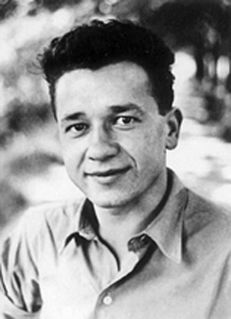A Quote by Alexander Hamilton
There are men who could neither be distressed nor won into a sacrifice of their duty; but this stern virtue is the growth of few soils: And in the main it will be found, that a power over a man's support is a power over his will.
Related Quotes
Men in great place are thrice servants; servants of the sovereign state, servants of fame, and servants of business; so as they have no freedom, neither in their persons, nor in their actions, nor in their times. It is a strange desire to seek power and to lose liberty; or to seek power over others, and to lose power over a man's self.
The cross stands as a mystery because it is foreign to everything we exalt- self over principle, power over meekness, the quick fix over the long haul, cover-up over confession, escapism over confrontation, conform over sacrifice, feeling over commitment, legality over justice, the body over the spirit, anger over forgiveness, man over God.
The world is ruled by neither justice nor morality; crime is not punished nor virtue rewarded, one is forgotten as quickly as the other. The world is ruled by power and power is obtained with money. To work is senseless, because money cannot be obtained through work, but through exploitation of others. And if we cannot exploit as much as we wish, at least let us work as little as we can. Moral duty? We believe neither in the morality of man nor in the morality of systems. [p. 168]
The rapid progress of the sciences makes me sorry, at times, that I was born so soon. Imagine the power that man will have over matter, a few hundred years from now. We may learn how to remove gravity from large masses, and float them over great distances. Agriculture will double its produce with less labor. All diseases will surely be cured... even old age. If only the moral sciences could be improved as well. Perhaps men would cease to be wolves to one another... and human beings could learn to be human.
I have never been able to conceive how any rational being could propose happiness to himself from the exercise of power over others... An honest man can feel no pleasure in the exercise of power over his fellow citizens.... Power is not alluring to pure minds and is not with them the primary principle of contest.
A certain type of person strives to become a master over all, and to extend his force, his will to power, and to subdue all that resists it. But he encounters the power of others, and comes to an arrangement, a union, with those that are like him: thus they work together to serve the will to power. And the process goes on.
Neither numbers nor powers nor wealth nor learning nor eloquence nor anything else will prevail, but purity, living the life, in one word, anubhuti, realisation. Let there be a dozen such lion-souls in each country, lions who have broken their own bonds, who have touched the Infinite, whose whole soul is gone to Brahman, who care neither for wealth nor power nor fame, and these will be enough to shake the world.
When a man has offered in sacrifice all that he has for the truth’s sake, not even withholding his life, and believing before God that he has been called to make this sacrifice because he seeks to do his will, he does know, most assuredly, that God does and will accept his sacrifice and offering, and that he has not, nor will not seek his face in vain.




























